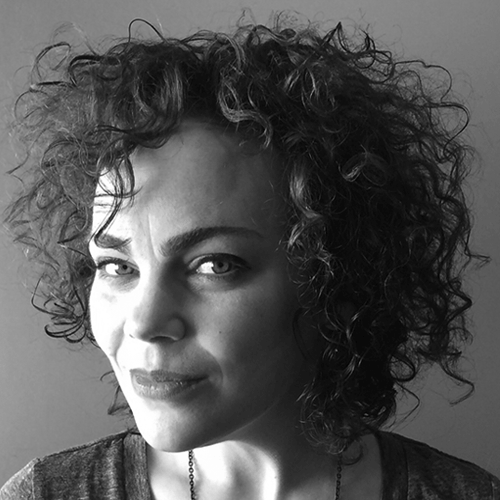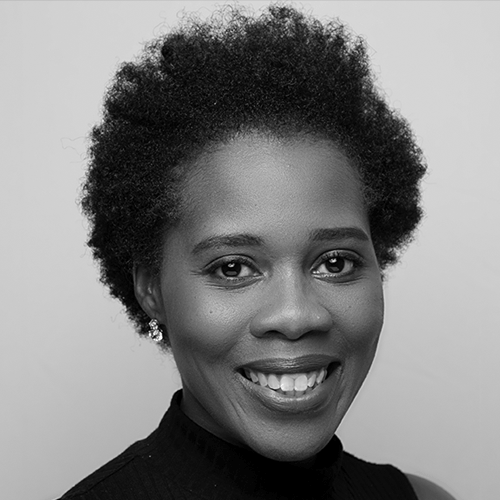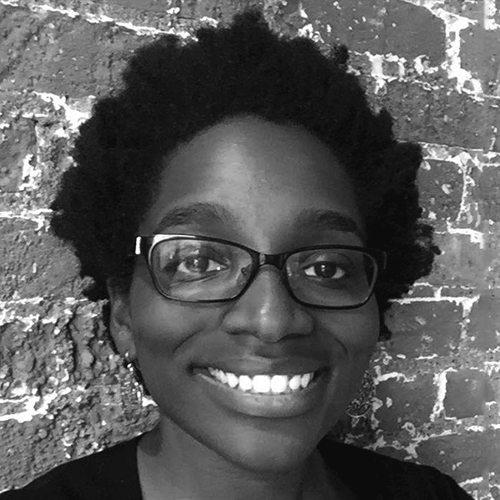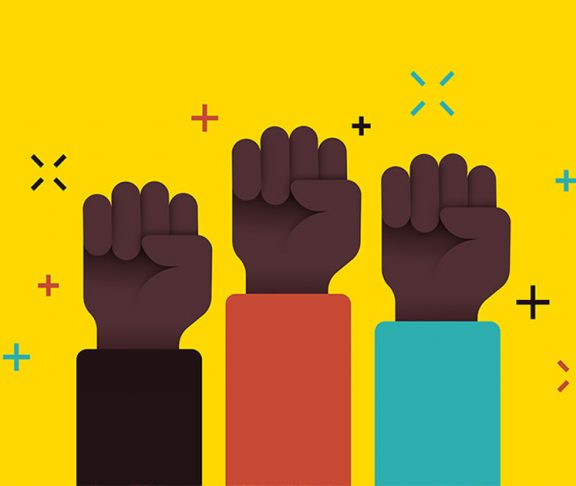While All Star Code is one of the only organizations specifically focused on technology training for young men of color, we look forward to the equal advancement of men and women of all races and nationalities, in tech and beyond.
We are proud to amplify our sisters in tech, our sister organizations, and the women on our All Star Code team. We are a small but mighty team — seven out of our eleven staff members are women — and we care deeply for the economic equity of Black and Brown boys and young men.

Alexandria Hamlette
Senior Director of Development
Why is it important to you as a woman to create pathways to economic equity for the next generation of Black and Brown young men?
My work has always centered around building wealth for Black and Latinx communities. I’ve always been guided by a responsibility to improve the lived experiences of my community, because if we won’t who will? As a Black woman, I envision a world where Black and Brown young people are able to live dynamic lives and have every opportunity to pursue their dreams. This vision will always steer me.

Pryanka Bawa
Programs Manager
Why is it important to you as a woman to create pathways to economic equity for the next generation of Black and Brown young men?
Women have been struggling for centuries. We’ve been undermined, we’ve been ignored, and we know what it feels like to pass through generations of neglect. We’ve experienced it ourselves, and we’ve heard horrifying stories from generations before us. Women continue to fight for economic equity and in doing so, understand the importance of having the means and the opportunity to let others hear your voice. The next generation of Black and Brown young men should not and cannot be victimized like the generations that have come before them. We have a responsibility to ensure that these young men have every opportunity possible to change their lives for the better, and in doing so, make it possible for future generations to do the same.

Janelle Reyes
Programs Associate
Why is it important to you as a woman to create pathways to economic equity for the next generation of Black and Brown young men?
I’m tired of witnessing the oppressive systems that bar Black and Brown young people from getting the care they deserve to achieve success. However, as a non-Black woman of color, I also have the privilege and positionality to dismantle these systems and offer my support to those that I am serving. In order to imagine and build a future of economic equity, it’s important for me to create pathways that advocate for communities of care, where all folks not only have access to the resources and opportunities that support their development, but to also feel safe in living their truth.

Nadine Freidman-Roberts
Senior Director of Programs
Why is it important to you as a woman to create pathways to economic equity for the next generation of Black and Brown young men?
White people have historically hoarded resources, wealth and opportunities that never belonged to us. White women have sought proximity to this level of power and access, at the expense of Black and Brown people, instead of working to uplift them. I aim to be a part of that change.

Rachel Armamentos
Communications Associate
Why is it important to you as a woman to create pathways to economic equity for the next generation of Black and Brown young men?
I feel a deep desire to work in this space to aid any talent and effort that I have to bolster and uplift Black and Brown excellence. I am in constant awe of our Scholars — these young men identify new and old systemic issues that have affected them and their ancestors for generations and organize their friends and brothers to create solutions. Theirs is the most important work — I am humbled to aid their projects and dreams in any way I can.

Dondrie Burnham
Director of Development & Strategic Communications
What drives you most about All Star Code’s mission?
I grew up in a small town in Louisiana in one of the worst school systems in the country. I spent my adolescence vying for the same opportunities and investment as many of my peers. I’ve spent most of my adult life fighting through racist institutions and microaggressions for the opportunity to show what I am capable of. I envision a future for our young men that affords them the opportunity to thrive rather than survive.

Chinue Foreman
Scholar Services Manager
What drives you most about All Star Code’s mission?
When I look at these young men, I often think of my father and the young men that he grew up with. While my father grew up middle class during the 1950s and 1960s, he was limited in his opportunities of advancement due to living in the Jim Crow South. I think of how he was first to integrate his high school and was forced to sit alone at the lunch table because no one wanted to sit with the one Black student in the entire school. I think of how he had to join the military and work three jobs to pay off his tuition for both undergrad and medical school. Often, I think of all the trials and tribulations and strife that he had to endure to achieve his dream of becoming a doctor. Everything that I do here is with our Scholars in mind. I want the Scholar Services to be a program that is of immense value for our students. I want it to become a resource for our students so that they are not having to navigate their paths by themselves. I don’t want our Scholars to struggle in the same manner as my father did.

